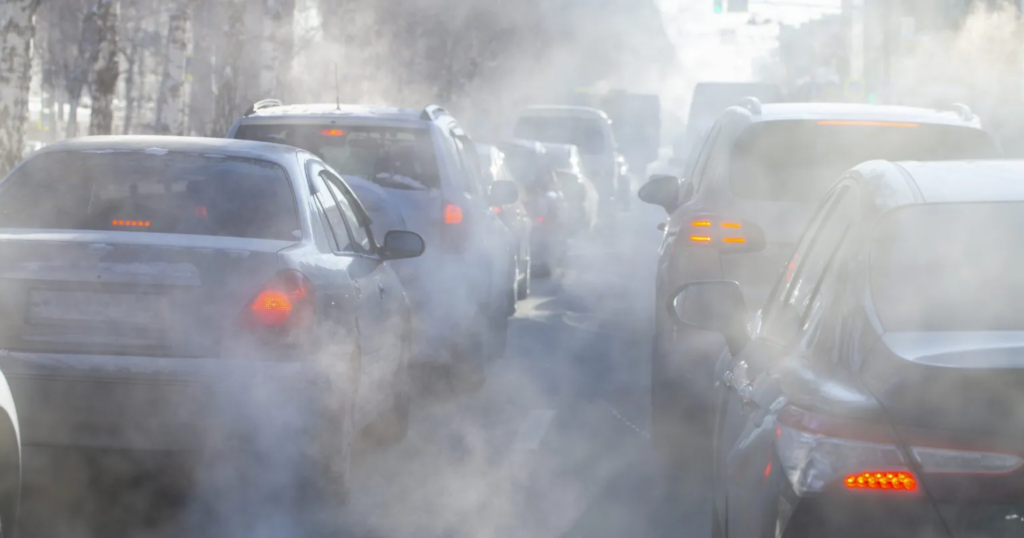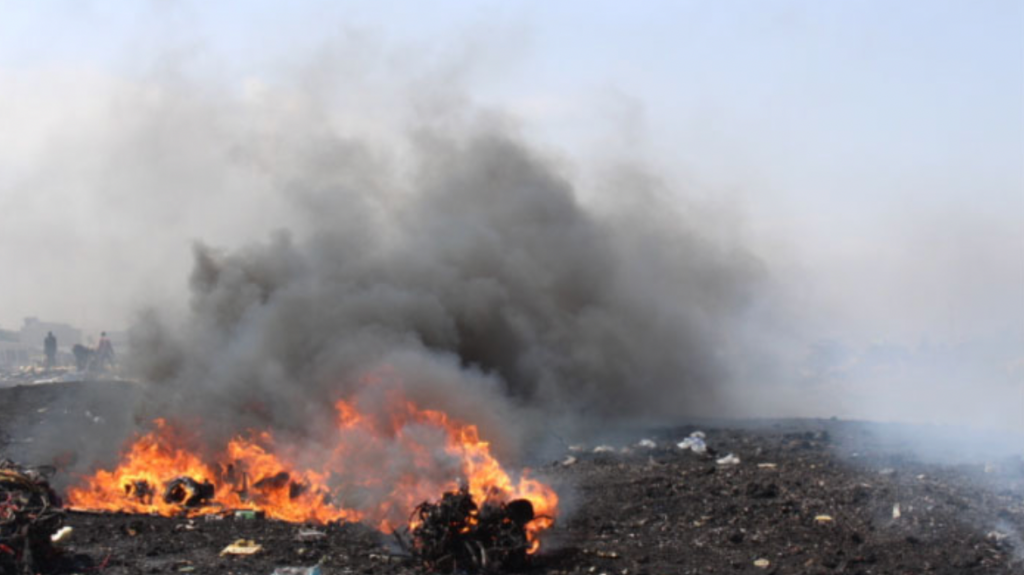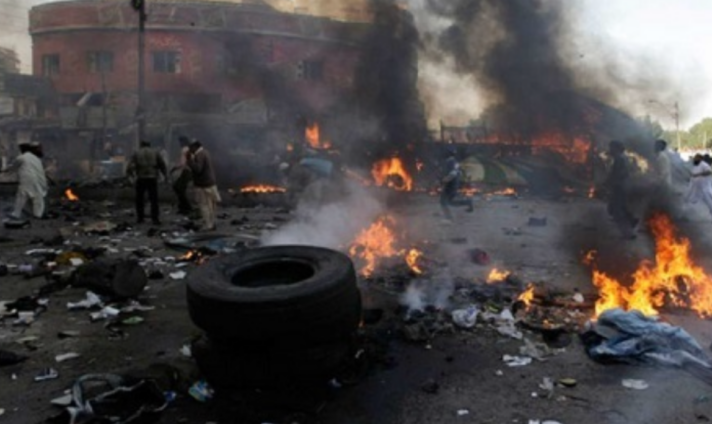At first it wasn’t clear to the family members what had killed their beloved father.
Dr Ato Atobrah, a retired lecturer, had been taking a nap in his bedroom. Several hours later they found his lifeless body.
Footage from a closed-circuit television revealed the killer. The 70-year-old had awoken when smoke poured into his room from a neighbour’s burning waste pile.
The disturbing footage showed Dr Atobrah coughing and then suffocating before losing consciousness. No one was home to help him get out.
A postmortem report showed Dr Atobrah’s underlying asthma made his death from the smoke pouring into his room almost inevitable.
“Fire requires oxygen and consumes much of the available oxygen individuals need to breathe and remain conscious,” says Dr Clarence Basogloyele, a surgeon at the Greater Accra Regional Hospital.
Smoke from burning waste is a major source of air pollution. People with weakened or immature lungs are more vulnerable to its effects. That has meant the disease burden from air pollution is disproportionately borne by infants and the elderly.

The late Dr Atobrah’s family was lucky in one sense. The surveillance camera and postmortem report confirmed the cause of death of their loved one. But there are many such cases that go unnoticed.
At least 28,000 Ghanaians die prematurely every year as a result of air pollution, according to a World Health Organization 2020 study. Many more are sickened.
Air pollution is the second highest health risk factor for death and disability, after malnutrition. Young children and adults over 50 are most at risk of disease and premature death.
The government does not have a nationwide air quality policy or targets. However, there are sector-specific policies and guidelines that address air pollution, as well as clean air initiatives in Accra, according to Clean Air Fund, a U.K.-based charity working towards clean air globally.
Mr Emmanuel Appoh, Managing Consultant for EnviroFin Consult, a firm focused on environmental assessments and air pollution, says the quality of air urban dwellers breathe is of major concern.
He says some problems like vehicle emissions need government solutions but individuals are also to blame.
Mr Appoah says pollution activities, including burning garbage at home, at land fill sites, and the use of vehicle tyres to singe animals have become rampant in Ghana’s urban Centres, especially in Accra and Kumasi. Air quality sensors located around Accra and Kumasi show regular spikes in air pollution from burning.
“These are criminal acts, especially burning openly,” says Mr Appoh, who was previously a prosecutor for the Environmental Protection Agency. “There are regulations that prohibit people from engaging in that but it is still happening at unsustainable levels. This is partly due to poor enforcement.”
He says that clamping down and punishing offenders of these sources of air pollution could save many lives and lighten the health and economic burden on individuals and the nation.
Air pollution is one of Ghana’s top environmental risks to public health. It is the sixth-ranked overall risk – out of 19 – for death. The danger from air pollution comes from tiny particles emitted into the air.
The smallest, known as particulate matter 2.5 for their size, are especially dangerous to humans and animals because they bypass many of the body’s defenses.
They can invade the lungs causing respiratory illnesses and also the bloodstream where they can damage the heart and other organs. Air pollution has been linked to diabetes, heart disease and other major illnesses.
The United Nations Framework on Climate Change Convention identifies air pollution as a global issue leading to more than seven million premature deaths around the world each year.
The cost to Ghana’s economy is estimated at $US2.5 billion, or 4.2 per cent, every year according to a World Bank study.
Open burning – who is responsible for disposing waste ?
Improvements to Ghana’s waste management system are crucial to improving air quality say experts. Ghana practices a ‘polluter pays’ system, which requires individuals to pay for the disposal of their waste.
An estimated 12,710 tonnes of solid waste is generated every day, with only 10 per cent collected and disposed of properly, according to a United Nations Development Programme report.
Millions of Ghanaians are left with little choice but to burn it. Ghana only has 30 per cent of the infrastructure needed to safely dispose of the thousands of tonnes of waste generated, according to Mr Amidu Issahaku Chinnia, the Deputy Minister for Water and Sanitation.
“Despite the progress made we are still struggling with our waste disposal. It is the plan of government to build waste treatment plants in all regions. Few have been completed,” he says.

Lack of awareness is a major challenge. While some city dwellers are aware of the illegality of engaging in open burning, many say they are not.
A number of people the GNA spoke to in Accra late October did not know the dangers of being exposed to smoke.
“The waste collection trucks are not regular,” says Lucy Ackom, a resident of Adentan Housing, one of Accra’s residential areas. “We keep waste for days and our bins overflow littering the streets. The many calls do not solve the problem.”
Nii Armah Quartey, who lives at Lapaz, complains that tricycle operators that serve as stop gap for the big waste companies charge exorbitantly.
“I am left with no option but to burn the plastics, papers, and other light materials to reduce my cost. That is what almost all my neighbours do,” Quartey says.
Ensuring that open burning activities of all forms do not occur and the public are educated are responsibilities of the Environmental and Health Officers (EHO) embedded at the 261 local assemblies across the country.
But there are not enough of them to adequately police the problem, according to Mrs Florence Kuukye, Director, Metro Public Health Department of the Accra Metropolitan Assembly.
“Per the current decentralisation regime, we draw our financial support from the Assembly. However, we lack personnel and logistics to work. This makes the work frustrating,” she tells the Ghana News Agency. “As I speak with you, the Clean Air Fund has given us air quality sensors at some places in Accra, however, we cannot move to the site to stop such activities because there is no means of transport.”
The Environmental Health Department was established with the mandate to control any form of pollution threatening human health in the environment. This includes pollution from burning. But as the government decentralises control from the national government to assemblies the Department has been hamstrung, according to the director.
She says the head of the EHOs has been moved to the Water and Sanitation Ministry, while the workers are left at the local assemblies of the Ministry of Local Government and Decentralisation and Rural Development.
“The head does not have the body and the body does not have a head,” Director Kuukye explains.
The mother body of EHOs, the Graduate Environmental Health and Sanitation Professional Association of Ghana, has sent a petition to the Ministry of Local Government Decentralisation and Rural Development but has yet to receive a response.
GNA’s checks indicate that the Chief Director of the Ministry who received the petition has retired. Director Kuukye,therefore, urges the government to urgently appoint a head who will make a contribution to policy development at the Ministry.
A local development expert, with long experience in the sector, says there is a serious deficit in that decentralised structure that needs to be fixed.
The expert, who asked not to be mentioned for fear of official sanctions, says “the work of EHOs at the assemblies is supposed to be non-partisan but there is so much political influence. There are also resource and logistic constraints. EHOs need a head and dedicated resources to make them effective.”
According to the expert ,making EHOs effective might not be a catalyst for ending waste related sources of air pollution but it will contribute to its reduction.
He says awareness and stricter enforcement and collective action on open burning will ensure cleaner air and prevent deaths like that of Dr Atobrah. It will also save the national purse.
Latest Stories
-
FIFA Club World Cup 2025: Sundowns, Esperance join Al Ahly and Wydad as CAF representatives
2 hours -
CAFCL: Al Ahly set up historic final with ES Tunis
2 hours -
We didn’t sneak out 10 BVDs; they were auctioned as obsolete equipment – EC
6 hours -
King Charles to resume public duties after progress in cancer treatment
6 hours -
Arda Guler scores on first start in La Liga as Madrid beat Real Sociedad
7 hours -
Fatawu Issahaku’s Leicester City secures Premier League promotion after Leeds defeat
7 hours -
Anticipation builds as Junior Speller hosts nationwide auditions
7 hours -
Etse Sikanku: The driver’s mate conundrum
8 hours -
IMF Deputy Chief worried large chunk of Eurobonds is used to service debt
8 hours -
Otumfuo Osei Tutu II celebrates 25 years of peaceful rule on golden stool
8 hours -
We have enough funds to pay accruing benefits; we’ve never missed pension payments since 1991 – SSNIT
9 hours -
Let’s embrace shared vision and propel National Banking College – First Deputy Governor
9 hours -
Liverpool agree compensation deal with Feyenoord for Slot
9 hours -
Ejisu by-election: There’s no evidence of NPP engaging in vote-buying – Ahiagbah
9 hours -
Ejisu by-election: Independent ex-NPP MP’s campaign team warns party against dubious tactics
10 hours

